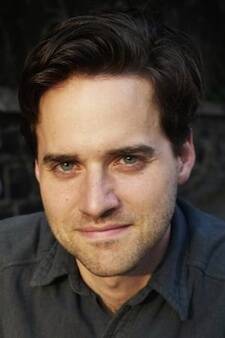My family attended Mass recently in the annex of a Lutheran church on the outskirts of a Colorado town near where we live. We entered through the side door, as if entering an underground. It read, “Light of Christ.”
“As Catholics,” the homily there began, “we are a sacramental people.” After that, and a bit more of a preface, the preaching took the form of a tender letter to a young woman who was receiving confirmation that day. For the most part the liturgy was familiar, though without the bishops’ 2011 translation adjustments; “only say the word and my soul shall be healed,” the congregation still said. Deftly, also, they avoided referring to God with feudal honorifics or gendered pronouns (though the Holy Spirit got a “she”). Communion included a gluten-free option. And after the liturgy was over, bewilderingly, nearly everybody stayed for an organizational meeting.
The priest was among the most skilled presiders I’ve ever had the chance to witness; the words of the liturgy came across with both the experience of years and the freshness of the moment. The priest was also a woman.
Light of Christ belongs to the Ecumenical Catholic Communion, an “independent Catholic” network with its own parishes, priests and bishops around the United States and Europe—Catholic in name and style but not formally in communion with Rome. Communities like this are more widespread than many Roman Catholics realize. Julie Byrne, a Hofstra University professor and the author of the landmark new book The Other Catholics: Remaking America’s Largest Religion, estimates that there are as many as a million independent Catholics active in the United States. Their predecessors go back centuries. Some believe the Second Vatican Council went too far and cleave to Latin Masses; for others, the modern Roman church hasn’t jettisoned enough old prejudices.
For Byrne, a friend and occasional collaborator of mine, her decade-long sojourn in independent Catholicism has been personal as well as academic—“partly an attempt,” she told me, “to see a broader range of answers to questions about what it means to be Catholic.” She has come to recognize these non-Roman Catholic communities less as outliers than as integral parts of American Catholic culture as a whole. They are labs for experimentation and preservation, places of refuge for the adrift. They offer Communion and marriage to people Roman canon law has turned away. In many places, Byrne has found, Roman and independent pastors maintain good working relationships—albeit quiet ones.
Any Romish reader of The Other Catholics is sure to have moments of envy. Some might appreciate, for example, the gender balance of the Church of Antioch’s onetime husband-and-wife leadership team—the “conjugal episcopate”—or its capacious understanding of Catholic universality. Others might miss the inward posture of the Tridentine Mass. Parts of me want each of these things. And if I have not said so clearly enough already, I liked what I experienced at Light of Christ. The traditional him’s and Lord’s sometimes distract me from my prayers, while seeing a woman as an officiant didn’t. Even the best Roman priests I’ve known could learn a thing or two from her.
Byrne’s account of the independents, however, reminded me of a poster a Quaker friend of mine had on his wall, depicting the tangle of sectarian roots and branches that make up the Quaker tree. The Church of Antioch, for instance, underwent a schism during Byrne’s research. What these communities gain in flexibility and self-determination, they lose in continuity and expanse.
To be a Roman Catholic is to accept certain compromises—to live by rules that might change too quickly or too slowly for one’s taste, to worship alongside people one may disagree with, to tolerate a manifestly flawed institution rather than jumping ship. We can’t always have what we want from the church, or even what we feel we need. Yet through these compromises we bind ourselves to 2,000 years of meditation on the Gospel, together with a billion compromising people at once.
The independents remind us, at least, to nurture within our fold a spirit of exploration and experiment—in liturgies, in cultures, in governance, in orders. But they also remind us that, to remain whole, there must be the humility of limits.









Thanks for this response, and I'm grateful that this piece found its way to your community. Warm wishes to you!
It's an interesting, contested story. Read about it in The Other Catholics!